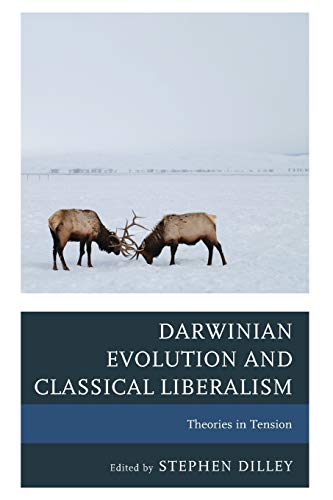

Most ebook files are in PDF format, so you can easily read them using various software such as Foxit Reader or directly on the Google Chrome browser.
Some ebook files are released by publishers in other formats such as .awz, .mobi, .epub, .fb2, etc. You may need to install specific software to read these formats on mobile/PC, such as Calibre.
Please read the tutorial at this link. https://ebooknice.com/page/post?id=faq
We offer FREE conversion to the popular formats you request; however, this may take some time. Therefore, right after payment, please email us, and we will try to provide the service as quickly as possible.
For some exceptional file formats or broken links (if any), please refrain from opening any disputes. Instead, email us first, and we will try to assist within a maximum of 6 hours.
EbookNice Team

Status:
Available0.0
0 reviews
ISBN 10: 149851619X
ISBN 13: 9781498516198
Author: Stephen C Dilley
Darwinian Evolution and Classical Liberalism canvasses an array of thinkers from the past to the present as it examines fundamental political, philosophical, ethical, economic, anthropological, and scientific aspects of the ferment between Darwinian biology and classical liberalism. Early chapters focus on classical thinkers like John Locke and Adam Smith, while later chapters provide analyses of present-day classical liberals, focusing especially on F.A. Hayek, Thomas Sowell, and Larry Arnhart, the most prominent advocates of ‘contemporary’ classical liberalism. Thematically, the volume falls into three parts. Part I examines foundational matters, arguing that Darwinism and classical liberalism hold incompatible visions of morality, human nature, and individual autonomy. This section also contends that the free market’s spontaneous order is fully compatible with a teleological (or non-Darwinian) view of the universe. Part II turns to contemporary applications, contending that Darwinism and classical liberalism are at odds in their views of (or implications about) limited government, vital religion, economic freedom, and the traditional family. This section also argues that, since its inception, Darwinism has attenuated core tenets and values of classical liberalism and Western civilization. Part III of the volume contains alternative views to those in the first two parts, adding critical diversity to the book. Respectively, these chapters hold that Darwinian evolution simply has little to say about classical liberalism; an evolutionary account of human volition is fully compatible with the individual choice presupposed in classical liberalism; and evolutionary naturalism, unlike religious alternatives, provides a strong foundation for freedom, morality, and the traditional family.
Chapter One: Pax vel Bellum? Evolutionary Biology and Classical Liberalism
Part I: Foundations: Morality and Mind, Human Nature and Nature’s Order
Chapter Two: Is Darwinism Compatible with Classical Liberalism’s View of Morality?
Chapter Three: Locke, Darwin, and America’s Future
Chapter Four: On Invisible Hands and Intelligent Design
Chapter Five: Darwinian Conservatism and Free Will
Part II: Applications: God and Country, Family and Legacy
Chapter Six: Darwinism, Economic Liberty, and Limited Government
Chapter Seven: Darwin Knows Best
Chapter Eight: Losing Our Religion
Chapter Nine: A History of the Impact of Darwinism on Natural Rights and Bioethics
Part III: Alternative Perspectives
Chapter Ten: On the Relationship between Liberalism and Darwinism
Chapter Eleven: Volitional Consciousness and Evolution
Chapter Twelve: Evolution and Classical Liberalism
Chapter Thirteen: An Historical Afterword
darwinian liberalism
evolution and darwin
principles of darwinian evolution
darwinian evolution principles
darwinian economy
theory of evolution book charles darwin
Tags: Stephen C Dilley, Darwinian, Evolution